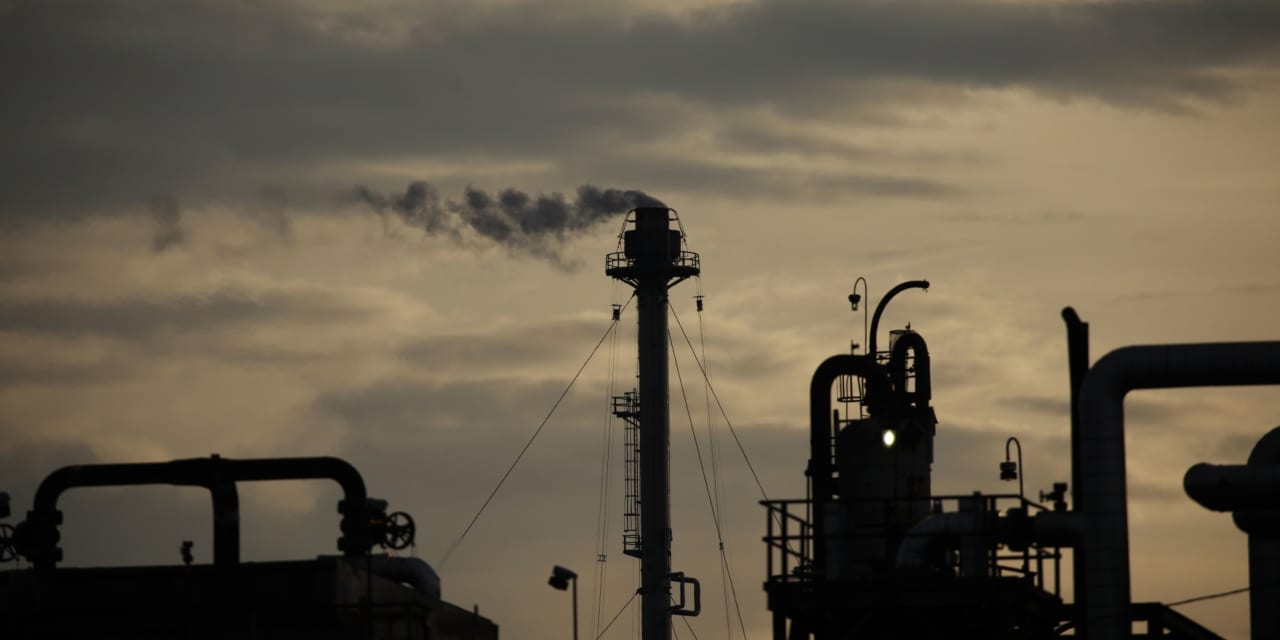The world’s largest oil companies are increasingly turning to one word to reassure investors that they’re not going to stop drilling: pragmatic.
That nondescript word keeps popping up on earnings conference calls—six times in the past year alone, versus about once a year between 2016 and 2022, according to data from AlphaSense.
Of course, if a CEO pledges to be “pragmatic,” it doesn’t always mean the company plans to ramp up oil drilling. But it has increasingly become oil producers’ buzzword to signal they’re still going to make money from fossil fuels, despite all the talk of green energy and pressures to produce it.
This push for pragmatism seems to be working in Big Oil’s favor, at least when it comes to their stock prices. (Big Oil includes
Exxon Mobil
and
Chevron
in the U.S., and
BP,
Shell,
and
TotalEnergies
in Europe.)
Several major oil companies—particularly in Europe—have been playing down their climate-friendly pledges to reassure investors that they’ll still make money from oil and gas. In 2023, European oil stocks outpaced their U.S. competitors for the first time in five years.
The word serves as an imperfect device to bridge the tricky gap that Big Oil has been navigating for the past few years. The companies are caught between the interests of shareholders and the push by regulators to stop fossil fuel producers from emitting so much carbon.
“We will continue to be pragmatic in our approach to how we navigate this energy transition,” said BP CEO Murray Auchincloss on an earnings call Tuesday. “Yes, we want to help scale lower carbon energy value chains and position ourselves to profit from them, but we must remain flexible, adjusting in line with changing demands and societal needs.” The stock rose 6.3% on the day.
These companies have used “pragmatic” rhetorically, to draw a contrast between their policies and the language of climate activists aspiring to bring about major changes in how the world produces energy. (It would, for instance, be surprising to hear an oil CEO describe a “pragmatic” approach to reducing production of gasoline as people shift to electric vehicles.)
On Wednesday, TotalEnergies CEO Patrick Pouyanné described the company’s strategy of investing in oil projects that should produce better cash flow than its existing projects as ”pragmatic.” Pouyanné has previously said Europe should embrace carbon capture—a practice criticized by environmentalists as a fig leaf for oil pollution—because it’s a pragmatic approach to solving climate change.
Shell also frequently turns to the word to describe its transition strategy. In fact, “pragmatic” came up six times at the company’s investor day last year, according to AlphaSense.
“While the destination of a net-zero emissions energy system remains clear, this will not be a linear journey,” said Shell CEO Wael Sawan. “Let’s be honest, no one knows the exact pace at which this will evolve in every country, and therefore we will be pragmatic in our approach.”
Similarly, Chevron Vice Chairman Mark Nelson said at an investor event last year that the company has “attempted to remain very pragmatic and consistent” as it invests in transition businesses. “We believe the conversations about the energy system must balance economic prosperity, energy security, and environmental protection.”
Analysts also use the term to describe oil company strategies that aren’t too heavily weighted toward green businesses. Piper Sandler analyst Ryan Todd called Chevron’s approach “a pragmatic balance between allocation of capital towards good low-carbon businesses but not too much to kind of protect returns dilution going forward.”
All the major oil companies have acknowledged the role of their products in exacerbating climate change, and have committed to varying levels of mitigation. But investors in oil companies have criticized the companies for spending too much money in areas like wind and solar—whose financial returns have not been as strong as oil in the past three years. By explaining their strategies as being pragmatic, the companies aim to appease those investors without upsetting regulators.
And who can blame them for being pragmatic?
Write to Avi Salzman at [email protected]
Read the full article here




